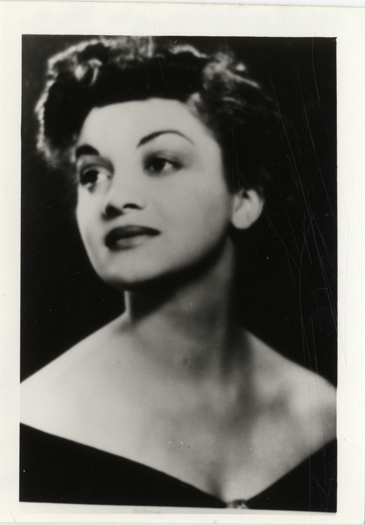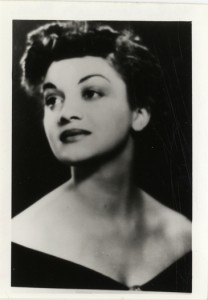
GOOD MORNING, P.O.U.!
And now for the conclusion of our series on Passing….
This is lengthy, but well worth the read.
ELSIE ROXBOROUGH

The “Passing” of Elsie Roxborough
By Kathleen A. Hauke
Driving her fashionable Ford roadster from Detroit to Ann Arbor, Elsie Roxborough arrived at the University of Michigan as a freshman fifty years ago last fall. She was the first Negro student to live in a University dormitory. Her classmate Arthur Miller, an aspiring playwright and fellow reporter on the campus newspaper, called her “a beauty, the most striking girl in Ann Arbor. She was lightskinned and very classy. To a kid like me, she seemed svelte, knowing, witty, sexy.” With her own group in Detroit, the Roxane Players, she produced Langston Hughes’s play Drums of Haiti, and charmed Hughes as she had charmed boxer Joe Louis some years earlier. Elsie Roxborough was “the girl I was in love with” in 1937, Hughes wrote in his autobiography. Upon graduation, Roxborough “passed” into the white world. The next time most of her friends heard of her was in 1949 when an eight-column headline in the black newspaper Michigan Chronicle announced her death from an overdose of sleeping pills. Hughes kept her photograph over his writing table for the rest of his life.
Who was Elsie Roxborough? What became of her, and what did she represent? A piecing together of her life suggests that her fate was to dramatize the truth of Hughes’s poem “House in the World”:
I’m looking for a house
In the world
Where the white shadows
Will not fall.
There is no house,
Dark brother,
No such house At all.
Elsie Roxborough started out to shake the stigma of color; when that proved impossible, she joined step with the oppressor. Her life as a disguised alien in the middle reaches of the white social register did not satisfy her ambition or her pride. Perhaps no happy ending awaited her. The welcome thawings of racial prejudice after the war, and the first signs of a civil rights movement, would only have mocked and embittered her in the years of her deception. A happy child become desperate, she is a case study of the “dark sister” excluded by the American Dream.
Elsie Roxborough came from an elite Michigan family. In 1930 her father, attorney Charles Anthony Roxborough, a Republican, was elected from Detroit’s Third District as the state’s first black state senator. He attempted to implement the Civil Rights Bill of 1885 by his own Resolution #11 which called upon the state “to investigate the discrimination at the University of Michigan.” Colored coeds had been denied space in the University residence halls by the Housing Director, the Dean of Women, and President Alexander Ruthven, who told the press he would allow the Union Trust of Detroit -since the funds for the women’s dormitory, MosherJordan, came from that source -to select who could live on campus.4 Roxborough’s uncle, John Roxborough, who started “policy” or “the numbers” (gambling) in Detroit, was one of the wealthiest men in town during the Depression. She became close to Uncle John during her high school and college years because he financed her, her sister Virginia, and their brother John at the University, just as he had helped to support young men with athletic potential who came to his attention.
